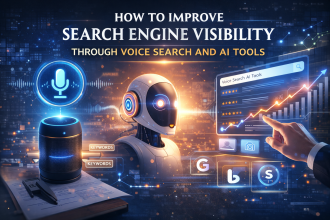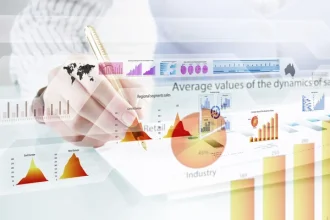SAP Business Intelligence (BI) provides tools and processes for analysing business data and supporting decision-making. It integrates data from multiple sources to generate reports, dashboards, and insights that improve business operations.
SAP BI’s foundation consists of core concepts related to data management and analytics. It has evolved continually to accommodate changes in technology and business needs. Its key features focus on ease of use, data integration, and detailed analytics capabilities.

Definition and Core Concepts
SAP Business Intelligence is a suite of applications designed to collect, transform and report data from various business systems. It enables organisations to access accurate and timely information for operational and strategic decisions.
Central to SAP BI is the concept of a data warehouse. This consolidated repository stores data from different sources, ensuring consistency and reliability. The system supports reporting, querying, and data visualisation with tools that allow non-technical users to explore data intuitively.
Evolution of SAP BI
Originally, SAP BI was launched as a standalone reporting tool for SAP ERP systems. Over time, it integrated new technologies including in-memory computing through SAP HANA, enhancing speed and data processing capabilities.
Recent developments focus on cloud-based solutions and self-service analytics. These trends allow more flexible data access and empower users to generate their own reports without IT intervention. The evolution reflects SAP’s response to growing data volumes and the need for real-time insights.
Key Features
SAP BI includes data integration, enabling it to connect with various databases and applications. It supports ad hoc reporting, which lets users quickly create customised reports without programming skills.
The suite offers interactive dashboards and visual analytics for intuitive exploration of data trends. It also provides strong security controls to protect sensitive business information and ensure compliance with data policies.
SAP Business Intelligence Components
SAP Business Intelligence involves several key tools designed to handle data collection, analysis, and reporting. These tools enable businesses to transform raw data into actionable insights through different approaches and technologies.
SAP BusinessObjects
SAP BusinessObjects is a suite of front-end applications that allow users to view, sort, and analyse business intelligence data. It primarily focuses on reporting and data visualisation, offering tools like Web Intelligence and Crystal Reports.
The platform supports ad hoc reporting, dashboards, and enterprise reporting capabilities, making it suitable for various business levels. It integrates with multiple data sources and can publish reports in multiple formats, including PDF and Excel.
BusinessObjects emphasises user-friendly interfaces and self-service options, empowering business users without extensive technical skills to generate reports and insights independently.
SAP BW/4HANA
SAP BW/4HANA is a data warehousing solution optimised for the SAP HANA in-memory database. It centralises data from diverse sources, enabling quick data modelling, storage, and querying.
It supports complex data transformations and aggregation, allowing businesses to prepare data efficiently for reporting and analytics. BW/4HANA’s tight integration with SAP HANA ensures real-time or near real-time data access.
This component is essential for organisations needing a scalable and high-performance platform to manage large volumes of structured data across the enterprise.
SAP Analytics Cloud
SAP Analytics Cloud is a cloud-based analytics platform that combines business intelligence, planning, and predictive analytics in a single solution. It offers a web-based interface accessible from anywhere, supporting collaboration and mobile access.
It provides augmented analytics features like automated insights and machine learning, helping users uncover trends and anomalies without deep technical expertise. The platform integrates data from SAP and non-SAP sources.
Users can create interactive dashboards, reports, and planning models with real-time data updates, making it a versatile tool for decision-making in dynamic environments.
Business Benefits of SAP Business Intelligence
SAP Business Intelligence delivers measurable improvements in how organisations manage data and make decisions. It streamlines access to varied data sources while enabling precise and timely analysis.
Enhanced Decision-Making
SAP BI supports faster, evidence-based decision-making by turning raw data into clear insights. Users can create customised reports and dashboards that reflect real-time performance indicators. This allows managers to spot trends, forecast outcomes, and adjust strategies accordingly.
It reduces reliance on intuition or outdated information. By offering detailed analytics, organisations can evaluate operations at granular levels, from sales to supply chains. This accuracy improves budgeting, risk management, and resource allocation.
The platform also enables predictive analytics, helping business leaders anticipate changes rather than react after the fact. This proactive approach supports competitive advantage and operational efficiency.
Data Integration and Access
SAP BI unifies data from multiple sources into a single, coherent system. It connects ERP systems, databases, cloud platforms, and external information, eliminating silos. This comprehensive view encourages collaboration across departments.
Accessing consolidated data is simpler through intuitive interfaces and customised user roles. Data refreshes automatically, ensuring users work with the latest numbers. This reduces time spent on manual data gathering and error correction.
The platform supports both structured and unstructured data formats, increasing the types of analysis possible. Integration capabilities also accommodate large volumes of data, essential for growing organisations aiming to scale intelligence efforts.
Key Use Cases for SAP BI
SAP Business Intelligence supports various business needs by providing tools for data access, analysis, and presentation. It helps organisations turn raw data into actionable insights through specific applications.
Reporting and Dashboards
SAP BI delivers customised reports that aggregate data from multiple sources, enabling organisations to monitor performance in real-time. Users can generate detailed operational reports, financial summaries, and compliance documentation efficiently.
Dashboards offer a visual snapshot of key metrics, allowing decision-makers to track trends and spot issues quickly. These dashboards are interactive and can be tailored for departments like sales, finance, and supply chain.
The system supports automated report distribution, reducing manual effort and ensuring stakeholders receive relevant information on schedule. It helps maintain data accuracy and consistency across the organisation.
Predictive Analytics
SAP BI integrates predictive analytics to forecast trends, customer behaviour, and operational outcomes. This capability uses historical and real-time data to build models that anticipate future events.
Organisations apply it to areas such as demand planning, risk management, and customer segmentation. Predictive insights enable proactive strategies instead of reactive responses.
The platform utilises machine learning algorithms and statistical techniques, improving over time as more data is processed. This helps businesses identify opportunities and mitigate risks with greater confidence.
Data Visualisation
SAP BI provides advanced data visualisation tools that convert complex datasets into clear, actionable visuals. It supports graphs, charts, heat maps, and geo-spatial representations.
Visualisation enhances understanding by highlighting patterns, correlations, and outliers. Users can interact with visuals to drill down into specific data points or aggregate views.
These tools improve communication across teams by making data accessible regardless of technical expertise. Effective visualisation aids faster decision-making and better collaboration.

Founder Dinis Guarda
IntelligentHQ Your New Business Network.
IntelligentHQ is a Business network and an expert source for finance, capital markets and intelligence for thousands of global business professionals, startups, and companies.
We exist at the point of intersection between technology, social media, finance and innovation.
IntelligentHQ leverages innovation and scale of social digital technology, analytics, news, and distribution to create an unparalleled, full digital medium and social business networks spectrum.
IntelligentHQ is working hard, to become a trusted, and indispensable source of business news and analytics, within financial services and its associated supply chains and ecosystems











